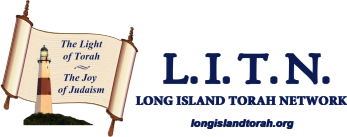Tetzaveh
Text:
Aaron is chosen to be the first Kohen Gadol [High Priest]. His vestments include a beautiful jeweled breastplate, in recognition of nobility of character displayed at the beginning of the Exodus:
And [G-d] said [to Moses], “Aaron your brother….will come out to greet you [on your way to Egypt to free the Jews], and he will see you and rejoice in his heart.”
[Exodus 4:14]
“Not as you think, that [Aaron] will feel hurt by your rise to greatness.[Rather, Aaron will rejoice in his heart – he will be happy for you.]”
For this [purity of heart], Aaron merited the adornment of the breastplate, which is placed over the heart.
[Rashi ibid.]
Had Aaron known that G-d would write, “[Aaron] will come out to greet you,” he would have gone out to greet [Moses] with drums and dances [i.e. with great fanfare].
[Midrash, Ruth 5:6]
Question:
We are told that Aaron received a badge of honor – the breastplate – in recognition of his selflessness in going out to greet Moses with joy. Then we are told that Aaron could have greeted Moses with “drums and dances” – indicating that he felt short of expectations. How can both be true?
Answer:
There is no contradiction, because the Midrash implies no criticism. Aaron did his best under the circumstances. But Aaron would have done more if he had known the degree to which his heroism would be recognized. The realization would have energized Aaron, boosting his abilities and enabling him to discover new strength.
Message:
Human potential is not fixed; what seems impossible – and may actually be impossible – can, with a bit of encouragement, become attainable. Aaron did the best he could – but he could have done even more if he had been privy to how greatly his actions were valued by G-d. With the right awareness, we can inspire ourselves and others, and watch the impossible become reality.
Click below to open a printable pdf
| tetzaveh_snapshot_and_closer_look_template_final.pdf | |
| File Size: | 939 kb |
| File Type: | |

